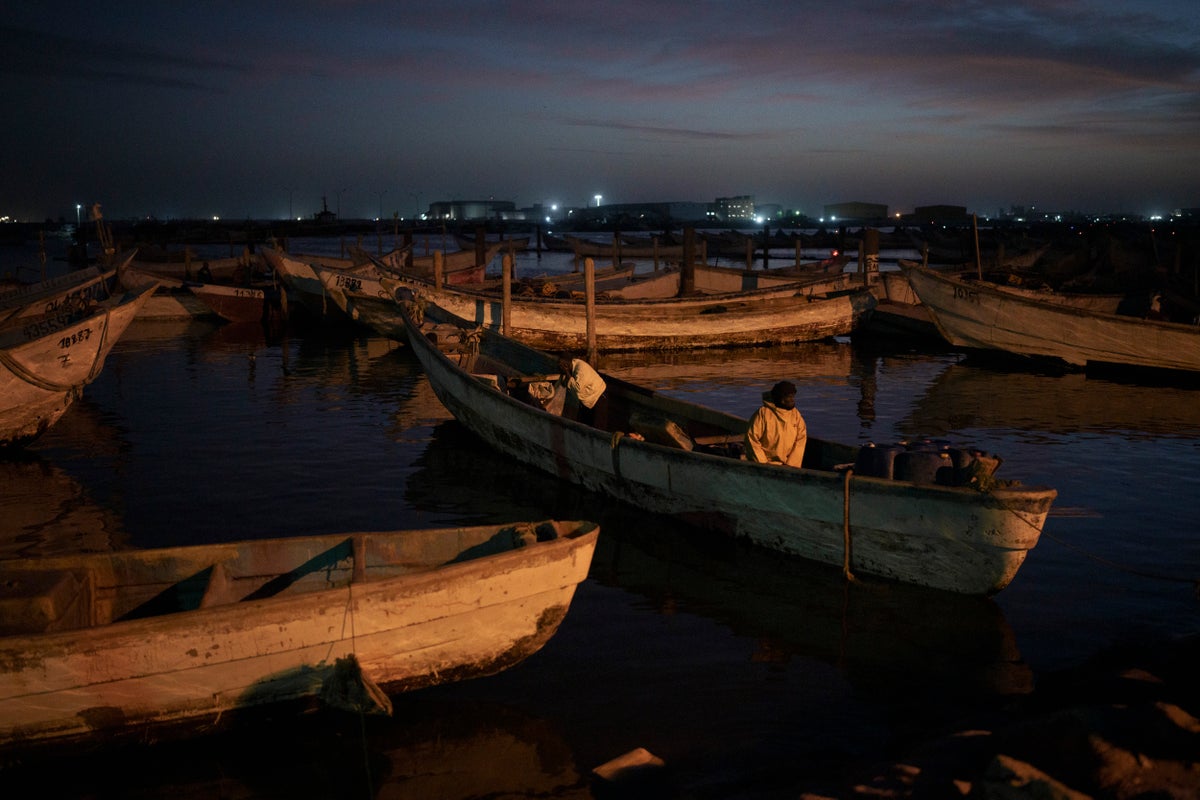
Every year, hundreds if not thousands of West African migrants disappear trying to reach the Canary Islands and, they believed, better lives in Europe. The real death toll is unknown, and so many people and boats are never seen again. But in 2021, something strange happened.
The boats, boats from the Atlantic coastal nation of Mauritania and other African nations, believed to have been used by migrants, weren't making it to the Canaries. They were emerging on the other side of the Atlantic Ocean, in the Caribbean and even as far as Brazil. All carried a sad cargo — the bodies of young men and women who dreamt of a new life in Europe. Few were ever identified.
They had drifted to death.
For nearly two years, Associated Press journalists traced the origins of one boat and the people who died in it. Their remains were found aboard a white and blue pirogue — a Mauritanian fishing boat — drifting near the Caribbean Island of Tobago on May 28, 2021.
As they traced what became of the men, they captured their journey. And arresting images emerged — images that conveyed the heartache, the loneliness, the futility of trying to find new lives by taking the biggest of risks.
These photos, by AP photographer Felipe Dana, chronicle the journey of these young men, of the places they left and were trying to reach. Taken together, the images show determination and desperation of the sort that many humans never experience — and that far too many humans do.
They show the village from where the men came, and the life they were trying to leave behind. They show the shores the men left, and the ones they reached only in death. They show kids not unlike those who were lost, wearing clothing similar to that found in the doomed boat.
And, in an emotional collage, they show the clothes that the men on that unfortunate pirogue were wearing when they died — clothes tracked down by the AP and removed from plastic bags, under watchful eyes, to gather evidence about who they were.
In one image, the single doomed boat sits on the shoreline at dusk, cleared of remains, the only physical reminder of the young lives lost. In another, a hand in a protective latex glove examines the prized mobile phones of men who will make no more calls, check no more messages. In another, a dusty Mauritanian highway speaks to the bleak life these men wanted to get away from as they looked to the sea for their next chapter.
And then there is a haunting silhouette of Soulayman Sangaré of Kayes, Mali, stuck — as he characterizes it — in Mauritania. He might not say so, but he is one of the lucky ones. He tried to get out once, then twice, but was thwarted. He is still alive.
But how long that will last is unclear. Like those before him, those who died alone and at sea, Sangaré is committed to getting out.
"I want to try and leave again. That is my decision.”
Asks a journalist: “Nothing will make you change your decision?”
“Nothing. Only death.”







